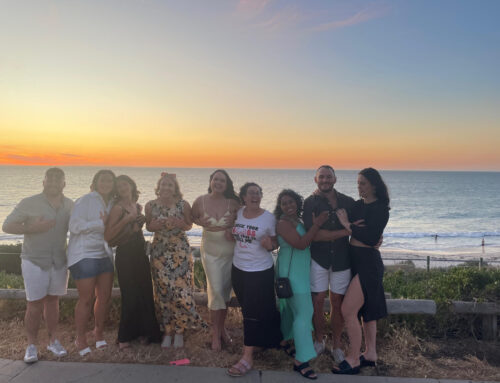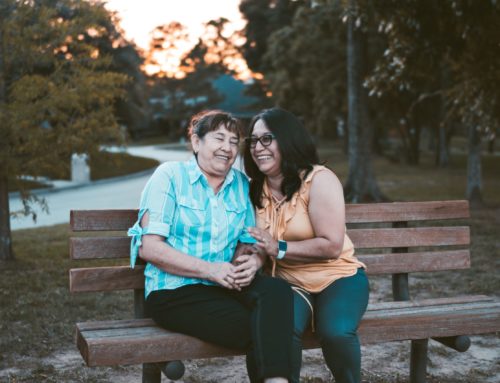There’s increasing awareness among Australians about the role of diet in reducing the risk of cancer, and simple changes such as boosting your consumption of vegetables, fruit and wholegrain foods can have a lasting impact.
But did you know a healthy diet can also support a speedy recovery and a more rapid return to life post cancer treatment? We spoke to Valion Health dietitian Jane Freeman to learn more.
Jane is an internationally regarded cancer dietitian and nutritionist (APD, APN), who provides advice and tailored eating plans for participants in Valion Health’s programs at every stage of the cancer trajectory.
Sustainable small changes
There are many aspects of the cancer treatment and recovery process where it’s sensible to rely on health care professionals to take charge and drive the decision-making process, however, making improvements to diet is an area where patients have real agency.
“Making positive changes to diet really empowers patients and gives them a sense of control and some comfort, especially in the post-treatment phase when they might be worried about recurrence and other things they can’t control.”
Jane says the secret to success here is taking a tailored approach to making these lifestyle improvements as everyone has a different starting place, a different experience of cancer and treatment and different priorities as they enter their recovery stage.
However, simple changes that work for everyone and that are supported by evidence-based research from the Cancer Council include:
- Eating a variety of raw and cooked vegetables, fruit and legumes (e.g. dried beans, lentils).
- Enjoying plenty of cereals (including breads, rice, pasta and noodles), preferably wholegrain.
- Eating small serves of red meat, no more 400g a week. On the other days choose fish, poultry, tofu, dried or canned beans or lentils.
- Choosing foods low in salt.
- Avoiding too much fat, especially saturated fat and be aware of hidden fats in snack foods, cakes and takeaway foods.
- Choosing low fat yoghurt, cheese and milk.
While these changes are effective, Jane says the most important thing for people to remember is that a perfect diet all the time is not the goal, and that small simple improvements over a sustained period are easier to implement and stick with.
“Sometimes meeting a friend for a slice of cake and a chat delivers more health benefits than a bowl of carrots, and for dietary improvements to be sustainable we need to make them around our life.”
The power of protein and calcium
In the immediate post recovery stage, when the body is still rebuilding, but life commitments start creeping back in, Jane recommends boosting protein intake to increase strength and energy.
“Unlike fats and carbohydrates, our bodies don’t store protein, so it’s really important to try and get protein at breakfast, lunch and dinner to rebuild muscle and energy levels.”
In addition to limited servings of red meat, the Cancer Council recommends lean poultry, eggs and fish, legumes such as lentils and chickpeas, tofu, seeds and nuts as good sources of protein for cancer patients.
Jane says another challenge for recovering cancer patients can be maintaining calcium and Vitamin D levels, and she says it’s a common deficiency, but one that can easily be checked.
“I always remind people to get a blood test and then use this to determine which key nutrients are missing and how they can be balanced. In some cases it’s just a matter of having a cappuccino every morning.”
Jane says in most cases deficiencies can be addressed via diet alone and cautions against the consumption of expensive supplements and vitamins, which she says lack evidence supporting their efficacy.
“We know that the nutrients you’re getting from wholefoods such as apples or spinach are much better than what you can buy, and the money spent on supplements is much better spent on purchasing beautiful fresh food.”
Meal myths
It doesn’t take too long to end up down a rabbit hole on the internet and this is certainly the case when it comes to sourcing information about diet and cancer.
Jane says there are a couple of pervasive myths which just keep circulating, no matter how much evidence there is to the contrary, and she says sugar is the biggest.
“If I had a dollar for every person who asked me whether sugar feeds cancer, I’d be rich! Glucose is our main fuel and feeds our entire body but cutting out sugar will not starve cancer cells, our bodies just kick in and use our stores, which can lead to burnout.
“Instead of cutting sugar people are better off eating a healthier diet and getting more exercise, that’s way more effective than cutting sugar to reduce the risk of cancer,” she said.
One of the other common cancer myths surrounds the consumption of soy, which Jane says actually has a protective effect for breast cancer survivors.
“As with most foods, moderate amounts of soy milk, edamame and tofu are quite healthy, and soy is an excellent form of protein that delivers an equivalent amino acid profile to animal proteins.”
Takeaways
A key takeaway that Jane wants you to know is that takeaways are okay! When it comes to diet, everything in moderation is the key to making sustainable changes that will slowly and surely work to improve your overall health and wellbeing and your recovery from cancer, especially when combined with exercise.
“With every meal there are choices to make, and you should just try and do your best most of the time. It’s all about balance and enjoying food as a part of a healthy life experience. If, at the end of the week after eating seven days’ worth of meals you come out of top, then that’s a win!”
Valion Health’s Cancer Support for Life Program helps cancer patients get back to the activities they enjoy. Over the program an expert team, including dietitians, will work with you to build your strength, reduce fatigue and increase your fitness levels. You can learn more here.



